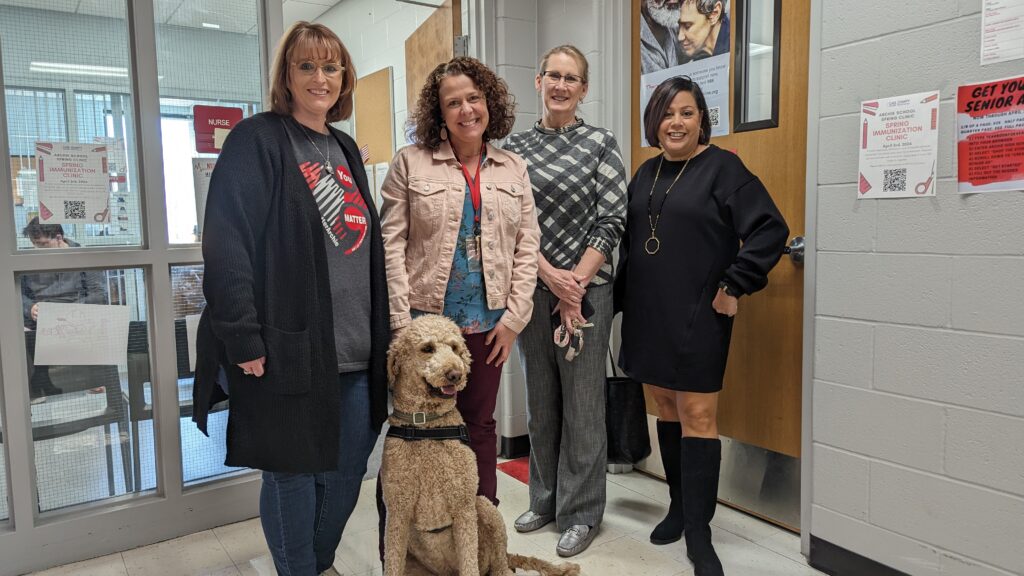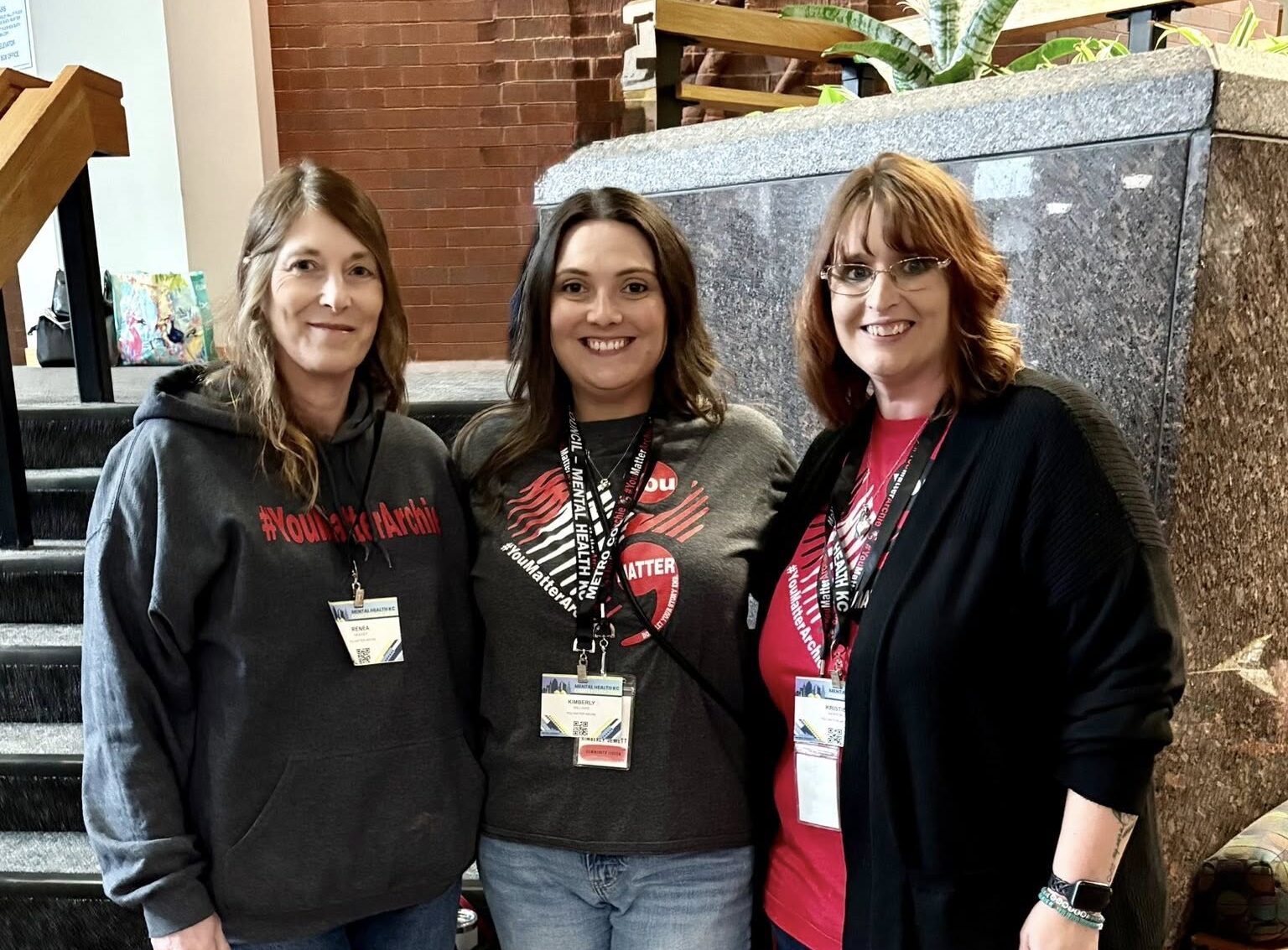Imagine losing one of the people you care most about. No warning. No red flags signaling this person is about to leave your life forever.
One day they are there. The next day they are gone.
Kristie Morton does not have to imagine this scenario. She lost her beloved son, Hunter, to suicide in February 2022.
He was in middle school. He had a core friend group and was on the football and wrestling teams. Everything about his life appeared “normal”, which made the loss even more jarring.
Morton made the conscious decision to repurpose her grief into something productive and positive: founding You Matter Archie, a nonprofit organization that works with the Archie R-V School District’s K–12 students to provide mental health resources and support through the school district’s Care Connector, word-of-mouth, teacher referral, or on-site mental health provider.
“The day our son took his life, my husband and I laid in bed that night, and said to each other, we’re not going to let his death define him,” Morton said. “We’re not going to let it be something that’s going to be hidden.”
According to the Centers for Disease Control and Prevention (CDC), 40% of U.S. high school students reported feeling persistent feelings of hopelessness or sadness in the past year. The CDC also reports that 20% of U.S. high school students seriously considered attempting suicide in the past year, 16% made a suicide plan, and 9% attempted suicide.
Suicide — specifically, teen suicide — is often viewed as a taboo topic, despite the high prevalence of teenage depression and suicidal ideation. It can lead to uncomfortable discussions and confronting the idea that your child may be struggling. This is especially true in rural communities, where everyone knows everyone. For many parents, ignoring the problem is easier than potentially becoming small-town gossip.
“We didn’t talk about suicide prevention before Hunter’s death,” Morton said.
You Matter Archie aims to remove the stigma surrounding suicide and mental health by doing one simple thing: getting the conversation going. In a world where serious concerns can metastasize in silence, Morton’s organization signals to parents and educators that it is time to speak up.
Losing her son is Morton’s biggest personal tragedy, however, the event served as a catalyst to prompt hard conversations people previously were not willing to have. Engaging in this open line of dialogue has already made a difference.
“We’ve had our two large events, our teen night and our family fest,” Morton said. “At our family fest, it’s preschool through fifth grade, and parents are like, ‘Thank you so much.’ I’ve had a kindergarten teacher even say to me, ‘I know you don’t see it, but we see it. We see it in our kids because they are now talking about their feelings.”
Getting people to open up, be vulnerable, and engage in frank and honest discussions has been a challenge. Morton’s other challenge is swaying the court of public opinion’s views on mental health, which can be especially difficult in rural settings where awareness and resources are thin.
“They always say that mental health is more important than your physical health, and I think that totally aligns,” Morton said. “Our superintendent here at school, Dr. Wityk, is fabulous and amazing. She said to me, ‘Kristie, if our kids are not mentally okay, they’re not going to be physically and academically okay in our building. So, we need to know that they’re mentally okay to continue to keep going each day.”
Similar to how achieving peak physical health requires continuous effort and repetition, Morton’s advocacy encourages people to view mental health the same way. The more it is discussed, the more effectively parents and educators can identify and manage depression, feelings of hopelessness, and other precursors to teen suicide.
Morton also wants people to know that it is not just “moody teens” that people need to worry about. Adults are also at risk, especially those in professions like protective services, with 47 suicides for every 100,000 workers; construction, with 60 suicides for every 100,000 workers; and agriculture, with 50 suicides for every 100,000 workers, according to statistics from the CDC.
“This is not just affecting our youth,” Morton said. “We’re talking farmers in our area. We’re losing them because of the stress of that. When you look at the rate of suicide when it happens to adult males, especially white males who are farmers, it’s outrageous.”
In a small town like Archie, Morton has established herself as the resident authority and leading advocate for suicide prevention and mental health awareness. When asked about her goals and the future of her organization, expansion is the next natural step.
Morton and You Matter Archie have successfully canvassed the local schools, churches, and youth groups, giving presentations and providing information about teen suicide and its risk factors. The town is far more informed than it was just three short years ago, but this is only the start for Morton. To expand, she has established meaningful professional relationships with organizations that share similar advocacy goals or have resources to contribute.
REACH Healthcare Foundation supports the health and mental health needs of rural communities in our service area by prioritizing the allocation of vital funding to local organizations to expand access to affordable care. Through our rural partners, such as Belton School District #124, Cass County Health Department, Compass Health, and others, targeted support is deployed in the community to address urgent health, mental health, and behavioral health challenges. The foundation’s investments are designed not just to fund services, but to empower these local organizations to collaborate and meet their residents’ most pressing care needs.

This year, the foundation provided funding to the Archie R-V School District to retain their care connector, whose role is to assist individuals in accessing essential resources, such as healthcare, mental and behavioral health services, and federal and state programs.
“Rural areas often have to manage with limited resources. Our commitment is to change that by investing in the people and programs that make behavioral health care more accessible,” said Carla Gibson, Vice President of Programs at REACH.
Morton is developing a practical toolkit to guide school districts in launching mental health and suicide prevention programs. Built on the success of their own parent-led, peer-driven initiative — You Matter Archie — the toolkit would provide a roadmap for creating community-rooted support programs and emphasize strategies for engaging students and families, raising awareness around suicide prevention, and partnering with local organizations to expand access to behavioral health services.
However, Morton faces a hurdle when discussing the program with other rural districts. School districts that have not experienced a loss due to suicide tend not to see the relevance of the program as much as those that have.
“We don’t want to come into a school where they’ve already lost a student,” Morton explained. “I want to come in there before you lose a student and before that student gets to that point.”
Ultimately, making progress comes down to thinking out loud, sharing ideas, and discussing the topics people have historically been too afraid to bring up. Morton admits she is figuring out a lot as she goes, but her zeal and passion make her the most obvious choice to captain the proverbial ship through uncharted waters. She also has nothing but high praise for her crew.
“To the girls on the You Matter Archie board — these ladies have not only held me up to get me through all of this, but they’re in the trenches as well. Kids come to them, too, and that’s what we want,” Morton said. “I want it to be a collective group of individuals that come from different backgrounds because our kids come from those backgrounds. And I believe we’ve got a really good mix of that. And I think our kids in our community know that.”
Learn more about Kristie Morton and her organization’s work at youmatterarchie.org.



